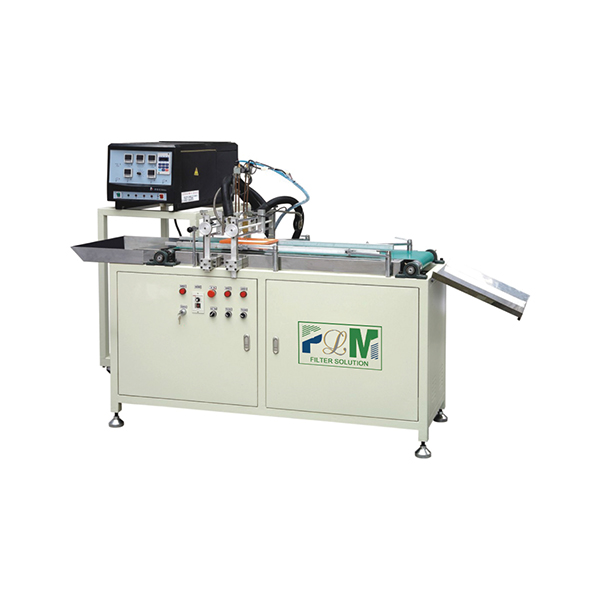Nov . 14, 2024 13:41 Back to list
activated carbon filter cartridge
Understanding Activated Carbon Filter Cartridges Enhancing Air and Water Quality
In today's world, the demand for clean air and water has never been higher. From home environments to industrial applications, the quest for pure substances is critical for health and well-being. One of the most effective and widely used methods for achieving this purification is through activated carbon filter cartridges. This article explores what activated carbon is, how it works, its applications, and its benefits.
What is Activated Carbon?
Activated carbon, also known as activated charcoal, is a form of carbon that has been processed to create a vast network of tiny pores, increasing its surface area. This microporous structure allows it to adsorb a wide variety of substances, making it an exceptional filter medium. The activation process generally involves heating carbon-rich materials in the presence of a gas, leading to the formation of porous structures capable of trapping impurities.
How Activated Carbon Filter Cartridges Work
Activated carbon filter cartridges work by a process known as adsorption, which differs from absorption. In adsorption, contaminants adhere to the surface of the activated carbon, rather than being absorbed into it. When air or water passes through the cartridge, the activated carbon captures particles like chlorine, volatile organic compounds (VOCs), and other undesirable substances, effectively cleaning the medium.
The effectiveness of these cartridges depends on several factors 1. Contact Time The longer the air or water is in contact with the activated carbon, the more impurities can be captured. 2. Carbon Surface Area A larger surface area allows for more adsorption sites, enhancing the filter's effectiveness. 3. Type of Contaminants Different types of activated carbon can be tailored to adsorb specific contaminants, offering targeted purification solutions.
Applications of Activated Carbon Filter Cartridges
Activated carbon filter cartridges are used across varying sectors for their purification properties. Some common applications include
1. Water Filtration These cartridges are extensively employed in drinking water systems to remove chlorinated byproducts, sediment, and even certain heavy metals, ensuring the water is not only safe to drink but also tastes better.
2. Air Purification In the realm of indoor air quality, activated carbon filters are used in air conditioning systems, air purifiers, and range hoods. They efficiently capture odors, smoke, and pollutants, creating a healthier living environment.
activated carbon filter cartridge

3. Aquariums For aquatic enthusiasts, activated carbon is crucial in maintaining clean water for fish and other inhabitants. It helps eliminate toxins and impurities, ensuring a balanced ecosystem.
4. Industrial Processes Industries rely on activated carbon for various processes, from gas treatment in chemical manufacturing to volatile organic compound capture in paint booths.
5. Medical Applications Activated carbon is frequently utilized in hospitals and clinics for air purification and in various emergency medical scenarios for toxin absorption.
Benefits of Using Activated Carbon Filter Cartridges
1. Cost-Effective Compared to other filtration methods, activated carbon cartridges are relatively inexpensive, making them an accessible solution for many households and businesses.
2. Eco-Friendly Activated carbon is often derived from renewable resources, ensuring a minimal environmental impact. Additionally, the ability to remove harmful substances reduces pollution and enhances public health.
3. Versatility With various types of activated carbon available, these filter cartridges can be customized for specific applications and contaminants, offering highly effective filtration solutions.
4. Improved Taste and Odor In water filtration, activated carbon effectively removes chlorine and other chemicals that negatively affect taste and odor, resulting in higher quality drinking water.
Conclusion
Activated carbon filter cartridges play a vital role in the quest for clean air and water in our modern lives. Their unique properties allow them to effectively capture a wide range of impurities, making them invaluable in domestic, industrial, and medical applications. As awareness about environmental issues and personal health continues to grow, the relevance of activated carbon technology is set to increase, providing an essential service to society's need for purity and sustainability in our daily lives.
-
Active Carbon Air Filter for Air Purifier – High Efficiency Filtration Solution
NewsJul.22,2025
-
Durable Sintered Porous Metal Filter Tube Cup & Machines
NewsJul.22,2025
-
Effective Active Carbon Air Filter for Purifiers | Eliminate Odors
NewsJul.21,2025
-
PLJT-250-25 Full-auto Turntable Clipping Machine | Efficient Automation
NewsJul.20,2025
-
Cheap PLJY109-500 Full-Auto HDAF Expanded Mesh Spiral Coiling Machine - High Efficiency & Quality Manufacturer
NewsJul.08,2025
-
Best PLHJ-6 Full-Auto Eco Filter Rotary Heat Plating Machine - High Efficiency & Eco-Friendly Solution
NewsJul.08,2025
